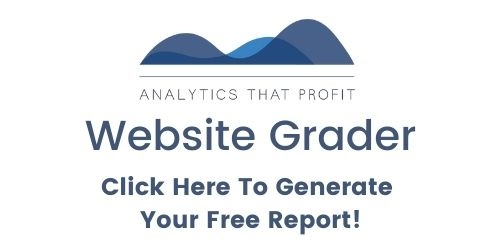Your website should be making sales for you not preventing them!
Modern websites must be lean, revenue-generating machines. Otherwise, what's the point in spending hard-earned cash on design and hosting fees?
Speed and conversion optimization are increasingly crucial for any website that generates sales. If you don't know your website speed or whether it could be faster, use Google's free PageSpeed Insights tool to find out. Just enter your URL and click "Analyze."

Source: HubSpot
Using the results, you want your website to score above 85/100 on desktop and mobile. Websites that load quickly and efficiently convert better than those that don't. Even a single second delay in page load time can result in a 7% loss in conversions.
Load Fast Or Lose Business
If your website needs five seconds to load, you're losing out on roughly 30% of potential customers or leads. No business can afford to do that.

Source: Portent
- Generally, site speed improvement has been flat. 82% of the pages we measured loaded in 5 seconds or less. This was the same as when we ran the study in 2019, before the pandemic.
- The difference in conversion rate between blazing fast sites and modestly quick sites is astonishing. A site that loads in 1 second has a conversion rate 3x higher than a site that loads in 5 seconds.
- The difference in conversion rate between blazing fast sites and slow sites is even more pronounced. A site that loads in 1 second has a conversion rate 5x higher than a site that loads in 10 seconds.
Source: Site Speed is (Still) Impacting Your Conversion Rate

Many different factors contribute to website speed, including:
- The size and quality of your images
- Your website's code and structure
- The server your website is hosted on
- How many plugins or third-party applications you're using
Fortunately, there are several steps you can implement to improve website speed and conversion, including:
Reduce Image Sizes - Large pictures and videos represent a significant bottleneck that adversely impacts website performance. Making them smaller will keep visitors and search engines happy. We like TinyPNG for images and Clideo for videos. We use the paid versions, but the do have free versions as well.
Clean Up Your Website Code - Always run optimized code that is error-free and fit for purpose.
Optimize For Mobile - Mobile phones have less processing power than desktops. Therefore, always design your website to load fast on mobile devices since most visitors use them.
Google Search Console provides detailed results on what needs improving.


Implement A Content Delivery Network (CDN) - Serving static content from a CDN is the quickest way to speed up most websites. CDNs store and send your website's files from servers close to you. This is one of the reasons we like to build websites on the HubSpot platform.
Cache Static Files - CDNs cache files, and your server should have directives that tell visitors' browsers to store unchanging files.
An excellent place to start is with Google's PageSpeed Insights tool, which will give you a list of specific things you can do to improve your website's speed. Once you've made some changes, re-run the test to see how your website's speed has improved.

Pro Tip: If you are using Chrome Extensions in your browser it will affect your results.

Remember, even a one-second delay in page load time can result in a 7% loss in conversions, so every little bit counts. But on the other hand, you may see a significant increase in sales and leads by taking the time to optimize your website's speed.
Supercharge Your Website's Potential
Conversion optimization builds on speed and performance optimization to streamline an effective sales pipeline. After all, there's no point in having a website that shares information only. Instead, your site should help convert prospects and take payments from existing clients.
Optimizing an existing website helps increase conversions. Many websites haven't had work done in the last three to five years. Make sure your business is cashing in on the trend.









